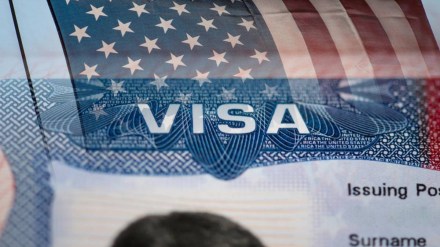India’s leading engineering and management institutes are carefully watching the changing US visa environment ahead of the 2025 placement season. Following US President Donald Trump‘s reforms to the H-1B programme and a new legislative push in Washington, Indian students aspiring for international jobs are facing growing uncertainty.
Group VC of BITS Pilani and ex-IIT Delhi director Ramgopal Rao told The Indian Express that international placements have always been about 5-10% part of total offers at IITs and BITS. The limited share means the overall impact may be contained, but experts cautioned that the impact could reshape both India’s domestic job market and global mobility for skilled graduates.
Limited immediate impact
Professor Rao told IE that the consequences of the H-1B changes will be “more cascading than immediate” but there may be a chance that outsourcing to India increases amid tightened US visa rules.
IIT Madras Director Professor V Kamakoti said that the multinational firms increasingly favour hiring Indian engineers locally rather than sustaining high US visa costs. “Most of these companies already have offices in India. Instead of spending a crore of rupees on an H-1B visa, they prefer hiring Indian talent to work locally. This shift will, in turn, strengthen the Indian ecosystem,” he told IE.
Director of IIM Indore Professor Himanshu Rai observed that the “American dream” no longer attracts most management graduates. He further said that IIM students today have a far wider outlook-markets in Singapore, Europe and the UK are becoming equally attractive options.
Placement experts told the Indian Express that the US companies are already reducing foreign hiring H-1B as registrations for FY 2025-26 dropped by almost 27 per cent.
Senator Tom Cotton’s Bill seeks to end exemptions for Universities
Meanwhile, Senator Tom Cotton has introduced the Visa Cap Enforcement Act, which would remove four key exemptions from the annual H-1B visa quota. It also includes the one that benefits foreigners who hold advanced US degrees.
In simpler terms, the bill proposes:
1. Removing existing loopholes that permit universities, research institutions and non-profits to recruit unlimited foreign workers.
2. Recounting foreign professionals who stayed in the US on H-1B status beyond three years against the visa cap.
3. Applying the same numerical restrictions to college and research-based hirings that private firms already face.
4. Counting job change petitions toward the annual cap to close transfer exemptions.
Cotton further explained that US universities “shouldn’t get special treatment” for bringing in what he termed as “woke and anti-American professors”. The bill’s objective is to make academic hiring subject to the same restrictions as corporate employment.
